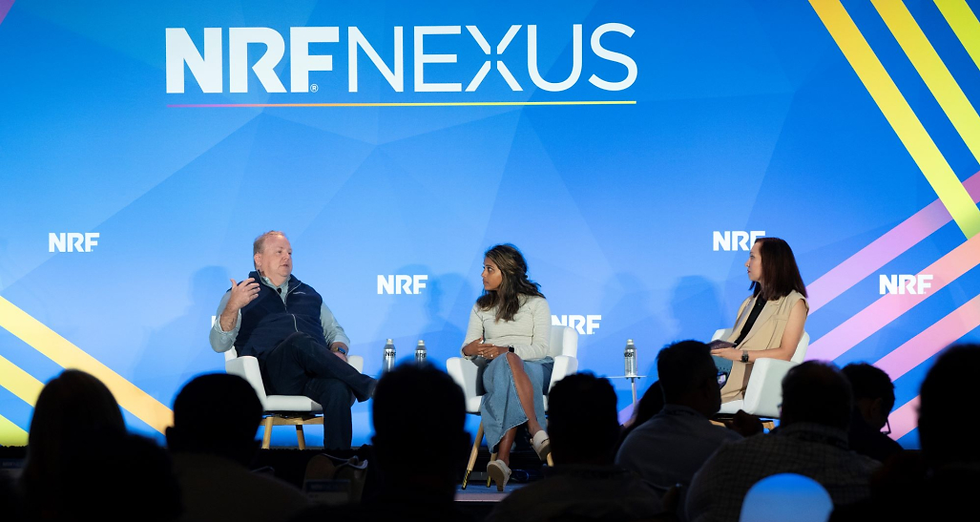Insight of the Day: 7 trends revealed at NRF Nexus
- InsightTrendsWorld

- Sep 4, 2024
- 3 min read
Findings:
Trust and Consistency: Building trust through consistent brand experiences across platforms is crucial. Consumers value reliable and seamless interactions, whether online or in-store.
Evolving Personalization: Personalization in retail is evolving beyond just showing recommended products. It's about understanding consumer behavior, context, and offering relevant, timely experiences.
Gen Z Redefining Luxury and Loyalty: Younger consumers are influencing retail by valuing quality, experiences, and personalized loyalty programs. They are more discerning and expect more from brands.
Expansion of Marketplaces: Online marketplaces are rapidly growing, driven by new players like Temu and TikTok Shop. This expansion is reshaping the ecommerce landscape.
Merging of Physical and Digital: The integration of digital tools in physical stores is enhancing the shopping experience, with technologies like AI and handheld devices becoming more common.
Growth of Auto-Replenishment: Auto-replenishment services are gaining traction, particularly for essential products that consumers don’t want to manage manually.
Rise of Live Shopping: Live shopping is becoming more prominent, especially through video commerce (v-commerce). It’s expected to drive significant growth and engagement in the retail sector.
Key Takeaway:
Retail is increasingly focused on creating seamless, personalized, and immersive experiences for consumers. The integration of technology in both online and physical spaces, alongside the rise of video commerce, is shaping the future of shopping.
Trend:
Major trends include the growth of online marketplaces, the merging of physical and digital retail experiences, the rise of live shopping, and the ongoing importance of personalization and trust in building consumer relationships.
Consumer Motivation:
Consumers are motivated by convenience, personalized experiences, and trust in the brands they shop from. Younger consumers, particularly Gen Z, are driving trends towards quality, experience-based loyalty, and engaging shopping formats like live shopping.
What is Driving the Trend:
The trends are driven by technological advancements, changing consumer expectations for personalized and seamless experiences, and the influence of younger generations who prioritize quality and engagement in their shopping experiences.
Who are the People the Article is Referring To:
The article refers to retail consumers, particularly younger generations like Gen Z and Millennials, who are shaping the future of retail with their expectations for personalization, trust, and engaging shopping experiences.
Description of Consumers, Product, or Service:
The consumers are tech-savvy, experience-driven, and value both convenience and quality. They expect brands to offer personalized services and seamless experiences across digital and physical platforms.
Conclusions:
Retailers need to focus on building trust and providing personalized, engaging experiences across all channels. The integration of technology in retail, particularly in the form of video commerce and auto-replenishment services, will be key to meeting consumer expectations.
Implications for Brands:
Brands should invest in technologies that enhance the shopping experience, such as AI and video commerce, while also ensuring consistency and trust across all consumer touchpoints. Understanding and adapting to the evolving preferences of younger consumers will be crucial for long-term success.
Implications for Society:
The increasing reliance on technology in retail reflects broader societal shifts towards digital engagement and convenience. As consumers continue to demand more personalized and seamless experiences, the retail industry will need to innovate continuously to meet these expectations.
Big Trend Implied:
The big trend implied is the seamless integration of technology in retail, from online marketplaces to personalized experiences and video commerce. This trend highlights the growing importance of convenience, trust, and engagement in shaping the future of shopping.




Comments